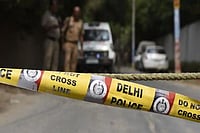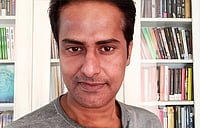The Varanasi District Court on Saturday gave 10 more days to the Archaeological Survey of India (ASI) to submit its report of the Gyanvapi Mosque's survey.
Judge AK Vishvesh ordered that the ASI could submit the report by November 28. Earlier, the ASI was to submit the report by Friday (November 17).
Earlier on November 2, the ASI told the court that it had "completed" the survey but may take more time to compile the report. The court then gave the ASI extension till November 17. Earlier, a similar four-week extension was given on October 5.
The ASI began the survey at the Gyanvapi Mosque in Varanasi, which is close to the iconic Kashi Vishvanath temple, on July 24 at the orders of a Varanasi court. The survey was, however, halted after it was challenged in the higher courts. The survey was eventually approved by the Allahabad High Court.
The court had ordered the survey in response to a petition by a Hindu group, seeking the right to regular worship of sculptures of Hindu deities on the mosque's outer wall, which had sought court directions to the ASI to survey the complex, according to PTI. The agency further reported that the court directed the ASI to conduct a "detailed scientific survey" to determine if the Gyanvapi Mosque is built upon a temple.
The present case stems from a petition filed by five Hindu devotees in August 2021. They sought rights to pray daily before Hindu idols on the outer walls of the Gyanvapi Mosque. In the hearing of the petition, a videography survey was ordered. During the survey, the 'shivling' was found close to the mosque's ablution pond. It was after this finding was publicised that the carbon dating of 'shivling' and the survey of the broader complex was sought.


























